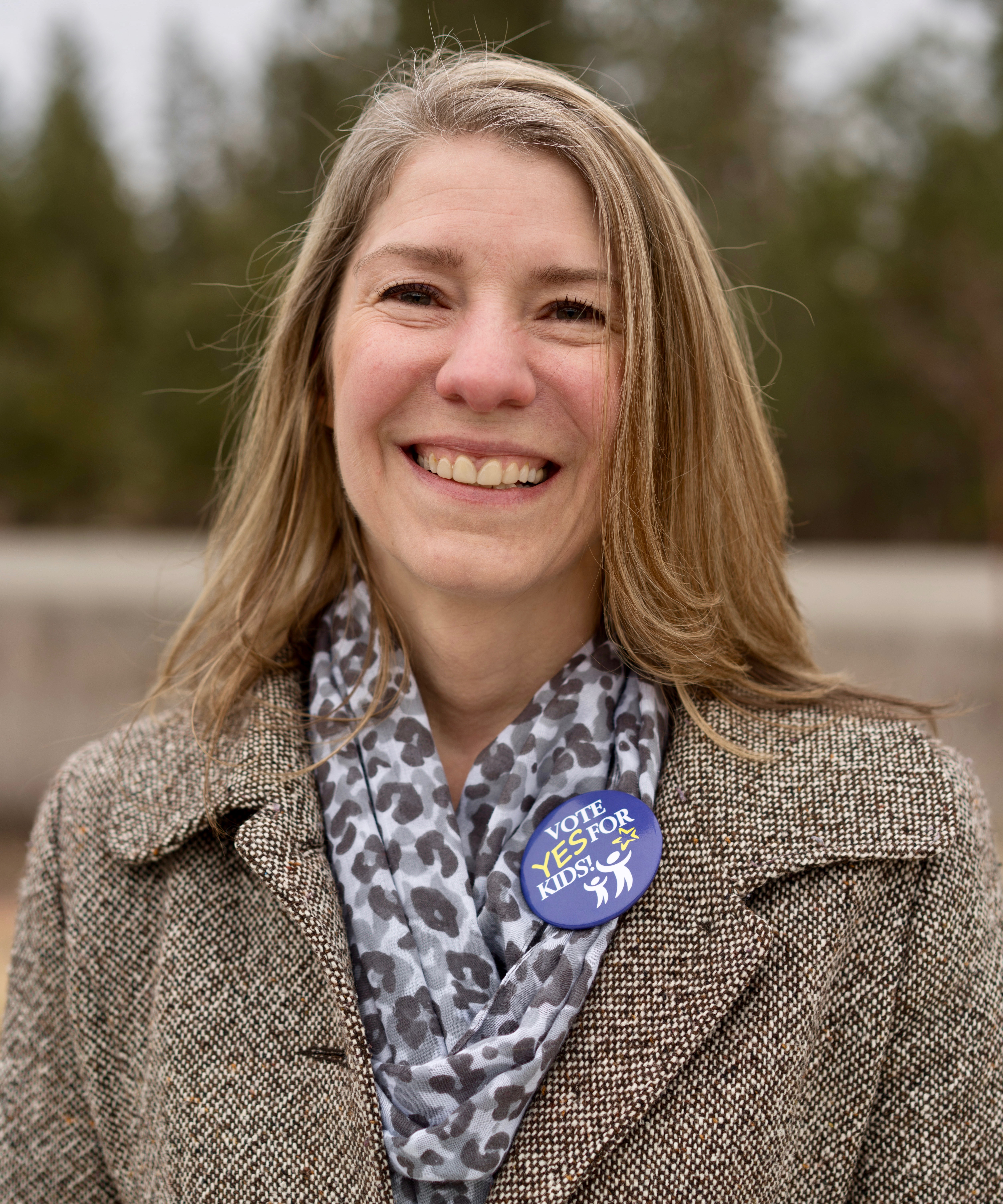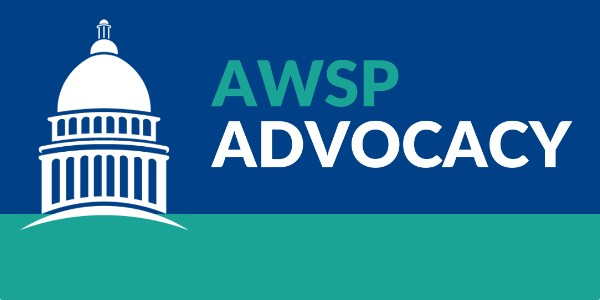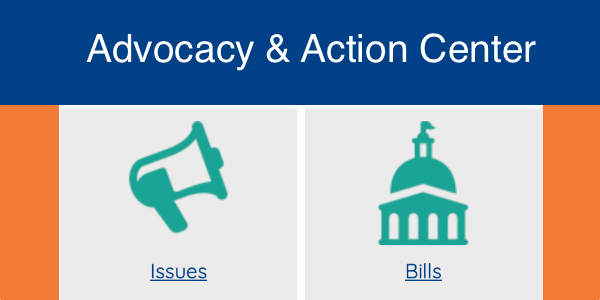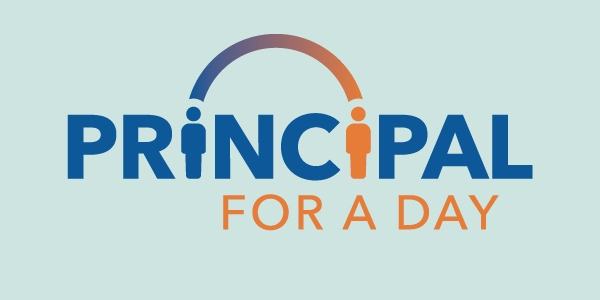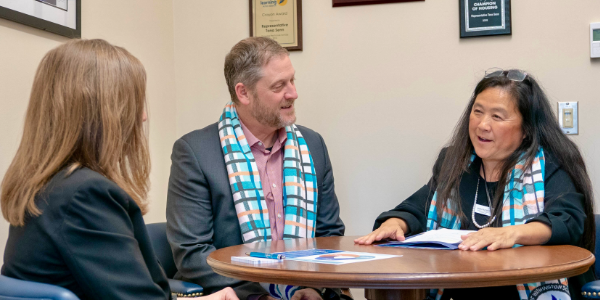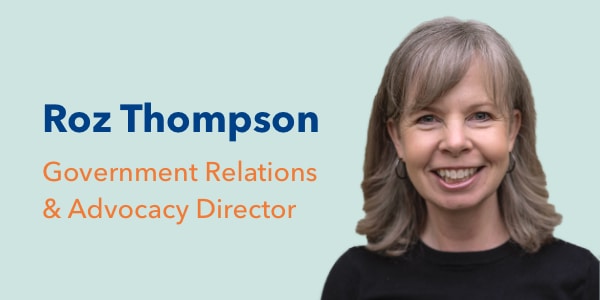We reached the halfway point of this year’s short legislative session this week and have passed several important cut-off dates. The action is now focused on passing bills out of both the House and Senate. Bills must pass off each floor by February 15 to stay alive (unless they’re NTIB). After that, the process repeats all over again in the opposite house, only with a shorter timeline. Hearings in the education committees start back up next Wednesday.
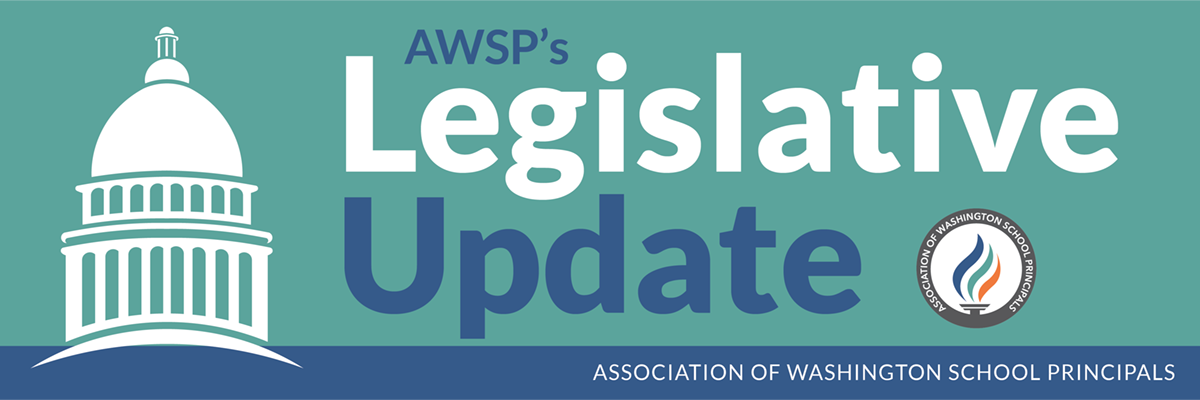
We reached the halfway point of this year’s short legislative session this week and have passed several important cut-off dates. The action is now focused on passing bills out of both the House and Senate. Bills must pass off each floor by February 15 to stay alive (unless they’re NTIB). After that, the process repeats all over again in the opposite house, only with a shorter timeline. Hearings in the education committees start back up next Wednesday.
My budget update for this week is about the same as last week. We know discussions continue around the funding amount in “the K–12 box”. We expect this will include funding for:
providing a commitment to fund additional support positions such as nurses, counselors, social workers, and psychologists through an update to the prototypical funding model,
providing enrollment stability, and
increasing transportation spending.
The State must also address the cost of living adjustments in the budget due to inflation increases. Our economy continues to be strong, so how the math on all of this works out remains to be seen. We hope funding will be as stable as possible for districts, and we get some critical new investments K–12 education.
I’ve spent some time this week on HB 1760, which would increase access to dual credit programs. Unfortunately, College in the High School programs were removed from the bill in the House Appropriations Committee. We think a simple amendment (perhaps when it moves to the Senate) to remove the 20-mile radius requirement on the College in the High School grant through OSP would be a nice addition. I’ll keep you posted about this.
In the meantime, if you want to share your thoughts about dual credit programs or any of the following bills with your local legislators, please send them an email. You can also invite them to meet with you via video conference or at your school so you can advocate on behalf of the principalship and your school’s needs.
Bills
Budget
- HB 1816 | Operating Budget (companion bill SB 5693)
- HB 1590 | Enrollment Stability (companion bill SB 5563)
- HB 1664 | Prototypical Support (close companion bill SB 5595)
- HB 1808 | Transportation Funding (close companion SB 5581)
- SB 5487 | Small District Consolidation
- SB 5933 | School Seismic Safety
Students
- HB 1611 | Highly Capable Students
- HB 1723 | Telecommunication Access
- HB 1736 | State Student Loan Program
- HB 1746 | Updating 2015 Report for Student Success
- HB 1833 | Electronic Option for School Meal Needs
- HB 1878 | Increasing Participation in Community Eligibility Provision
- HB 2068 | Creating the Imagination Library Program
- HB 2078 | Outdoor School for All
- SB 5497 | Student Board of Education Members
High School/Dual Credit
- HB 1162 | Performance Exhibition Pathway
- HB 1687 | College Bound Scholarship GPA
- HB 1723 | Closing the Digital Equity Divide
- HB 1760 | Dual Credit Program Access
- HB 1805 | Opportunity Scholarship Program
- HB 1835 | Postsecondary Enrollment (FAFSA completion support)
- HB 1867 | Dual Credit Data
- SB 5498 | Awarding Diplomas Posthumously
- SB 5789 | Innovation Challenge Program (similar to HB 1835)
- SB 5878 | Arts Instruction
Health/Safety
- HB 1759 | Secure Storage Info on School Websites
- HB 1800 | Increasing Access to Behavioral Health Services for Minors
- HB 1834 | Student Mental Health Absences
- HB 1890 | Children and Behavioral Health Work Group
- HB 1941 | Active Shooter Drills
- SB 5768 | Vapor Products
Workforce/Staff
- HB 1699 | Educators Working in Retirement
- HB 1791 | Professional Educator Reprimands
- HB 1942 | Paraeducator Training
- SB 5252 | School District Consultation with Tribes
Thank you, again, for all that you are doing for students and staff. Please contact me with any questions.


